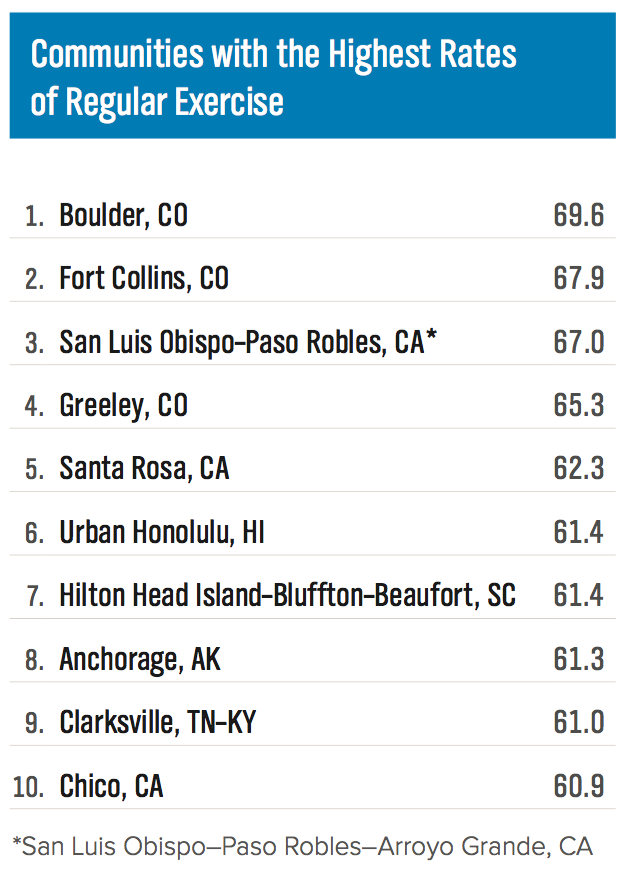Exercise is on the rise among Americans, particularly among millennials, according to a new report from Gallup and Sharecare, a health and wellness company. They found that 53.4% of Americans reported exercising three or more times a week, a two percentage point increase from 2008, and a modest increase from more recent years. The new figure is based on surveys of 177,000 people nationwide in 2016.
The city with the highest exercise rate was Boulder, Colo., where nearly 70% of residents say they exercise three or more times a week. Two other metropolitan areas in Colorado — Fort Collins and Greeley — also topped the list, at second and fourth place, respectively. Communities in California and Hawaii followed closely behind.
“As you might expect, the communities with the highest levels of reported exercise are also among the communities with the highest wellbeing overall,” says lead researcher Dan Witters. “That reflects the impact that exercise has on wellbeing.”
Enter your location below to see where your city ranks:


Witters wasn’t surprised by the cities atop the list: “Boulder has a very tangible culture of wellbeing, lots of bike paths, lots of built structure that makes the healthy choice the easy choice.” He says the same is true about almost every other high-ranking community. “These are places that have invested in walkability, green spaces and public areas where people can get together and move — all things that have proven to increase the chance of lots of people exercising in your area,” he says.
Boulder’s affluence is also a factor, explains Witters, as higher-income people report exercising more often, according to demographic data. Higher income is linked with better health literacy, health insurance and access to health care services and exercise facilities.
The overall increase in exercise rates is driven in part by young adults ages 18 to 29, who are exercising more than that age group did 10 years ago. “The millennials are improving across a wide variety of health metrics since 2008, while all the older generations are kind of flat,” Witters says.
More Must-Reads From TIME
- The 100 Most Influential People of 2024
- Coco Gauff Is Playing for Herself Now
- Scenes From Pro-Palestinian Encampments Across U.S. Universities
- 6 Compliments That Land Every Time
- If You're Dating Right Now , You're Brave: Column
- The AI That Could Heal a Divided Internet
- Fallout Is a Brilliant Model for the Future of Video Game Adaptations
- Want Weekly Recs on What to Watch, Read, and More? Sign Up for Worth Your Time
Contact us at letters@time.com